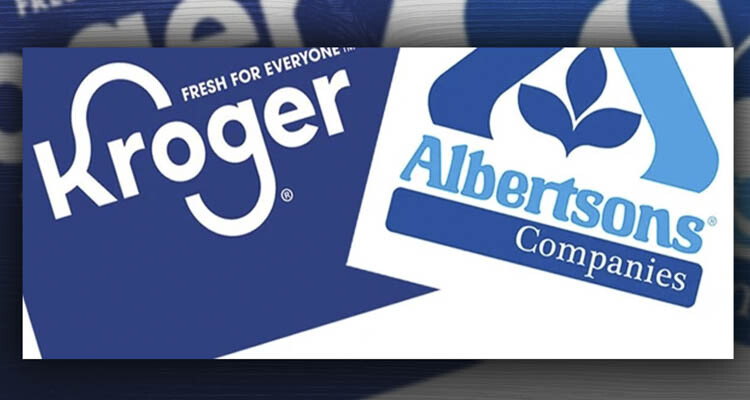
Chris Cargill of the Mountain States Policy Center analyzes the potential benefit of the Albertsons-Kroger merger for consumers
Chris Cargill
Mountain States Policy Center
Before you head over to the produce department and grab a few tomatoes to hurl in my direction, hear me out: the Albertsons-Kroger merger could be a very good thing for consumers.

Why? Because, like it or not, the way we shop has dramatically changed. More Americans are doing their shopping online or at a discount warehouse. Fewer go inside the grocery store. For many, that weekly trip to the market is becoming a thing of the past. Online and warehouse competition has changed everything – and it has helped lower the cost of many goods.
Walmart, Amazon and Costco are now the major players in the grocery marketplace. Chances are, you’ve purchased an item at one of the three over the past 30 days.
In fact, Walmart/Sam’s Club make up nearly a third – 30 percent – of the U.S. grocery market share. Costco tallies another 7 percent. Amazon is moving quickly and accounts for more than 5 percent. And consider this: Amazon Prime, Walmart+ and Costco have more than 250 million subscriptions.
Even if the Albertsons-Kroger merger proceeds, it would account for just 9 percent of nationwide sales, according to the International Center for Law and Economics. But what it would do is get the attention of the big three – increasing competition with their 42% of the current market share.
Kroger and Albertsons are cognizant of criticisms of the deal. The chains say they will sell 413 stores and eight distribution centers to address any questions about a monopoly in certain communities.
In fact, a review of all of the Albertsons and Kroger locations throughout the country shows very few places where the two stores both have locations.
The Federal Trade Commission is now reviewing the proposal and could rule sometime next year. Kroger-Albertsons says its prepared to fight in court to ensure the merger goes through. No supermarket mergers have been litigated since 1988.
It is likely the largest dispute will be over what defines the term “supermarket.” Does it have to be a traditional brick and mortar location? Will online supermarkets be counted? If not, why? It is clear that Amazon, Walmart and Costco directly compete with Kroger and Albertsons, so why wouldn’t they be included in any merger analysis?
Nearly 30 years ago, supermarkets accounted for 81% of retail sales. That dropped to 61% a decade later, and today, it’s near 50%. Where have all of the customers gone? Online and warehouse stores.
An economist with the Strategic Resource Group recently told Yahoo Finance “Kroger’s acquisition of Albertsons is the last, best, and final chance to level the playing field.”
As with any proposal, there is fear of the unknown. But we shouldn’t let fear destroy an opportunity to increase competition and improve the outlook for the consumer.
Chris Cargill is the President of Mountain States Policy Center, an independent research organization based in Idaho, Montana, Eastern Washington and Wyoming. Online at mountainstatespolicy.org.
Also read:
- POLL: Why did voters reject all three tax proposals in the April 22 special election?Clark County voters rejected all three tax measures on the April 22 special election ballot, prompting questions about trust, affordability, and communication.
- Opinion: The war on parental rightsNancy Churchill argues that Olympia lawmakers are undermining voter-approved parental rights by rewriting key legislation and silencing dissent.
- Opinion: An Earth Day Lesson – Last year’s biggest environmental victories came from free marketsTodd Myers argues that Earth Day should highlight free-market solutions and grassroots innovation as more effective tools for environmental stewardship than top-down mandates.
- Opinion: Time to limit emergency clauses and give voters a choiceTodd Myers urges the governor to remove emergency clauses from bills that appear intended to block voter input rather than address real emergencies.
- Letter: C-TRAN Board improper meeting conductCamas resident Rick Vermeers criticizes the C-TRAN Board for misusing parliamentary procedure during a controversial vote on light rail.










